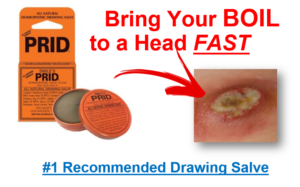Home Remedies for Boils on the Private Area
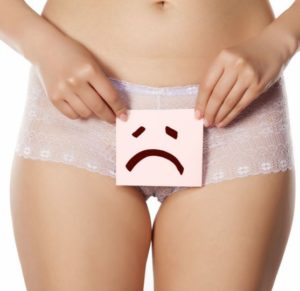 Having a boil on the private area is not only painful, but it can be quite embarrassing when seeking help for such an ailment. Fortunately, there are some powerful home remedies for boils on the Private Area.
Having a boil on the private area is not only painful, but it can be quite embarrassing when seeking help for such an ailment. Fortunately, there are some powerful home remedies for boils on the Private Area.
First, let’s explore what causes boils on the private area so we can understand how to better treat them…
Cause of Boils in the Private Area
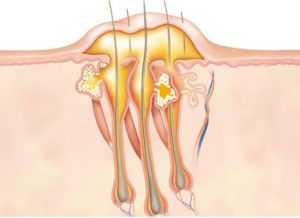 Genital boils is a type of infection on the skin that usually starts from a hair follicle or oil gland. Most of the time, bacteria known as staphylococcus (staph) enters through a micro-cut or tiny break in the skin, and infects the area.
Genital boils is a type of infection on the skin that usually starts from a hair follicle or oil gland. Most of the time, bacteria known as staphylococcus (staph) enters through a micro-cut or tiny break in the skin, and infects the area.
It’s not uncommon to find Staphylococcal bacteria on your own skin. However, it’s when this bacteria gains access to under the skin that you are vulnerable to getting an infection.
Those with poor hygiene (don’t bathe every day or clean genitals very well), and those who shave their pubic area are more susceptible to getting a boil in the area.
 Boils on Female Private Parts
Boils on Female Private Parts
On females, genital boils (or vagina boils) are pus-filled bumps that can form on the outside of the vagina, the pubic area, or the labia of the vagina. They often start out as a small red bump and turn into painful, swollen spots that are pus-filled.
 Boils on Male Private Parts
Boils on Male Private Parts
Male genital boils are usually found on the scrotum or on the shaft of the penis. Just like boils found on female private parts, these boils often start out as a small bump that eventually turn into a larger painful and pus-filled bump.
Natural Remedies for Treating Boils on the Private Parts
So what should you do if you find a boil on or near your private parts? Here are the best home remedies for boils on the private area.
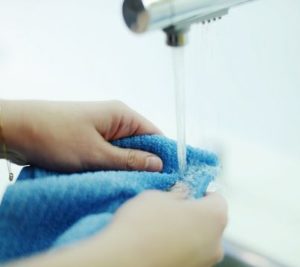 1.) Keep a warm, moist washcloth on the boil for 20 minutes, 3 to 4 times per day. The heat will help increase the antibody-carrying blood supply bring the infection and pus to a head faster. After a few days, it should eventually pop on its own and the pus should start to drain naturally.
1.) Keep a warm, moist washcloth on the boil for 20 minutes, 3 to 4 times per day. The heat will help increase the antibody-carrying blood supply bring the infection and pus to a head faster. After a few days, it should eventually pop on its own and the pus should start to drain naturally.
(NEVER attempt to squeeze or pop a boil. You will risk further infection and likely experience more pain.)
Keep applying this warm moist washcloth for a few days even after it pops, as it will help soothe the sore and draw out the infection.
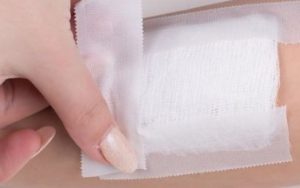 2.) Clean the affected area at least twice a day with a natural, antibacterial soap. You want to keep the infected area as bacteria-free as possible.
2.) Clean the affected area at least twice a day with a natural, antibacterial soap. You want to keep the infected area as bacteria-free as possible.
Also, be sure you keep it covered with a bandage between cleanings, and always use a new, clean bandage each time.
3.) Apply natural topical ointments. Below is a list of natural topical remedies you should apply once the boil opens and drains:
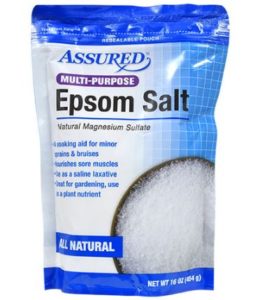 1.) Epsom Salt
1.) Epsom Salt
- It is highly beneficial to take a bath in Epsom Salt. This is one of those timeless healing remedies that can help dry out the pus from your boil, and help the boil drain faster.
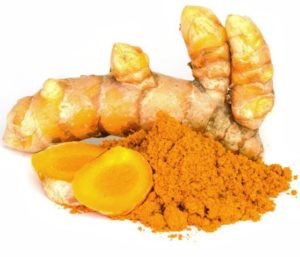 2.) Turmeric Powder
2.) Turmeric Powder
- Turmeric has been used for thousands of years in Eastern medicine. Whether you drink it or apply it topically, its anti-inflammatory and antibacterial properties will do wonders in speeding up the healing time of your boil. If taking it by mouth, you can mix it with water or milk. Or you can make a paste and apply it topically to your boil by mixing it with a little bit of ginger or water.
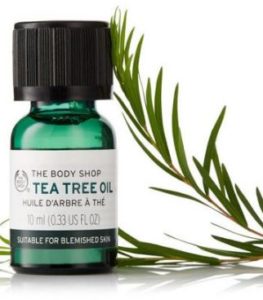 3.) Tea Tree Oil
3.) Tea Tree Oil
- Tea tree oil also contains strong traces of antibacterial and antiseptic properties. Because of its strong nature, it is best to dilute the tea tree oil with coconut oil or olive oil before rubbing it on the boil.
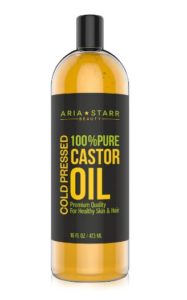 4.) Castor Oil
4.) Castor Oil
- This type of oil contains ricinoleic acid, which is a natural anti-inflammatory. It also contains natural antibacterial properties known for healing skin ailments.
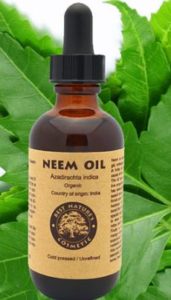 5.) Neem Oil
5.) Neem Oil
- Neem oil is popularly used for other types of skin conditions such as acne. It contains the same type of antiseptic and antibacterial properties as the other oils. You can apply this 3 times a day so it stays absorbs into the infected area.
How to Prevent Boils in the Groin Area
If you’ve had one boil, chances are you’ve either had or will have more to come. However, by taking the right steps, you can help prevent further boils from forming in your private area.
This also goes for other areas of your body…
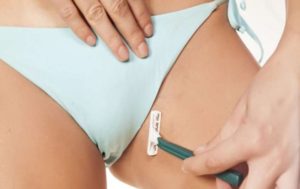 1.) Avoid shaving your pubic area if possible. If you do need to shave it, change your razor often (at least every 3 to 4 weeks).
1.) Avoid shaving your pubic area if possible. If you do need to shave it, change your razor often (at least every 3 to 4 weeks).
2.) Don’t share razors, ever. If you use a razor that’s been used by someone else, you could easily exchange bacteria since razors inevitably leave micro-cuts, which is an invitation for bacteria to enter the skin.
3.) Shower or bathe with strong antibacterial soap. Hibiclens is a great antiseptic skin cleanser to use. Many doctors suggest using it after surgery to keep bacteria away from an infection. You should also use an exfoliating sponge to open any blocked hair follicles and pores that could potentially house infection causing bacteria.
4.) Don’t share towels or sheets. You can easily spread bacteria from someone else’s skin by using the same towel or sleeping in someone else’s bed with unclean sheets. Make sure you wash any linens you use with bacteria-killing laundry detergent.
 5.) Watch what you eat. I know of a few people who noticed that whenever they ate certain foods, they were more prone to getting boils. For instance, someone I know kept a food journal and noticed that whenever she ate peanuts, coconut, and peanut butter (and oils made from those foods), she would end up getting a boil. Just be aware of what you are eating and if it happens around the time you see a boil flare up.
5.) Watch what you eat. I know of a few people who noticed that whenever they ate certain foods, they were more prone to getting boils. For instance, someone I know kept a food journal and noticed that whenever she ate peanuts, coconut, and peanut butter (and oils made from those foods), she would end up getting a boil. Just be aware of what you are eating and if it happens around the time you see a boil flare up.
F.A.Q.
Now that you know some of the best home remedies for boils on the private area, here are a few frequently asked questions about treating boils on the private parts.
Why Do I Keep Getting Boils On My Private Area?
You may be getting recurring boils on or around your genitals, if:
- You aren’t cleaning the area regularly with antibacterial soap
- You shave your pubic region
- Having sex with someone who has an infection on or around their private parts
- You’re sharing a bed with someone with an infection
- Your immune system is weak
Are Genital Boils a Sexually Transmitted Disease?
No. They are not considered a sexually transmitted disease (STD). However, genital boils can be spread to your partner by coming into contact with their skin. Bacteria from the infection can spread to your partner; and if the bacteria enters a break in their skin, they likely could get a boil infection. (Read more about how boils are contagious.)
What Kind of Drugs are for Boils in the Private Part?
There are several different types of drugs used for treating boils that a doctor may prescribe. Of course, this list isn’t extensive, and your physician may prescribe you something else. But here are a few possible medications:
Antibiotics:
- Amoxicillin
- Ampicillin
- Cephalosporins
- Sodium Fusidate
Topical
- Bactroban (topical) – RX Only
- Mupirocin (topical) – RX Only
- Centany (topical) – RX Only
- Gentamicin (topical) – RX Only
- Centany AT (topical) – RX Only
